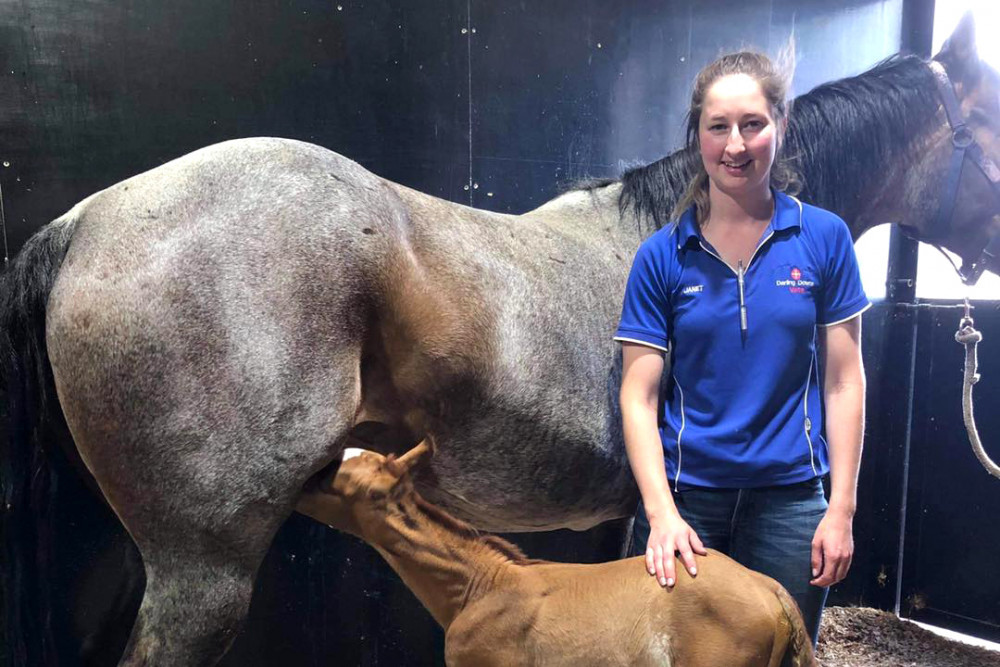Agricultural
16 August, 2021
Foaling season begins in region
With the first foal arriving in the hospital earlier this month, the team at Darling Downs Vets is urging all local horse owners to know the signs of a healthy foal and be able to identify when an animal needs additional medical attention.

Darling Downs Vets veterinary nurse Alex Walters said the first few hours of a newborn foal’s life are critical and it is important to be able to identify those foals who may benefit from early veterinary intervention.
“Normal foals show a reasonably predictive pattern of behaviour after birth, and any deviations from this can be an early indication of a problem,” she said.
Ms Walters said after birth a foal should:
- be able to sit on its chest within 5 to 10 minutes;
- have a strong suck reflex within 20 minutes;
- be able to stand within one hour and nurse within two hours of birth;
- urinate within 12 hours; and
- begin to pass meconium (first manure) within 12 hours after birth.
Ms Walters said early recognition of abnormal foals allows us to increase the chance of successful treatment and in turn a healthier foal.
She said it is important to seek veterinary care if the foal doesn’t follow the above timeline, is born prematurely, shows altered behaviour, has diarrhoea, has respiratory distress or becomes lame.
“It is advised that both the mare and foal be checked by a vet within 24 hours of foaling,” Ms Walters said.
“A blood sample can be taken at this time to measure the immunity (IgG) levels of the foal.
“Low levels of IgG means that the foal will need to be given plasma intravenously.”
She said Darling Downs Vets offers field vets that are available for consultations to examine the mare and foal post foaling as well as in hospital intensive care management of unwell foals.


